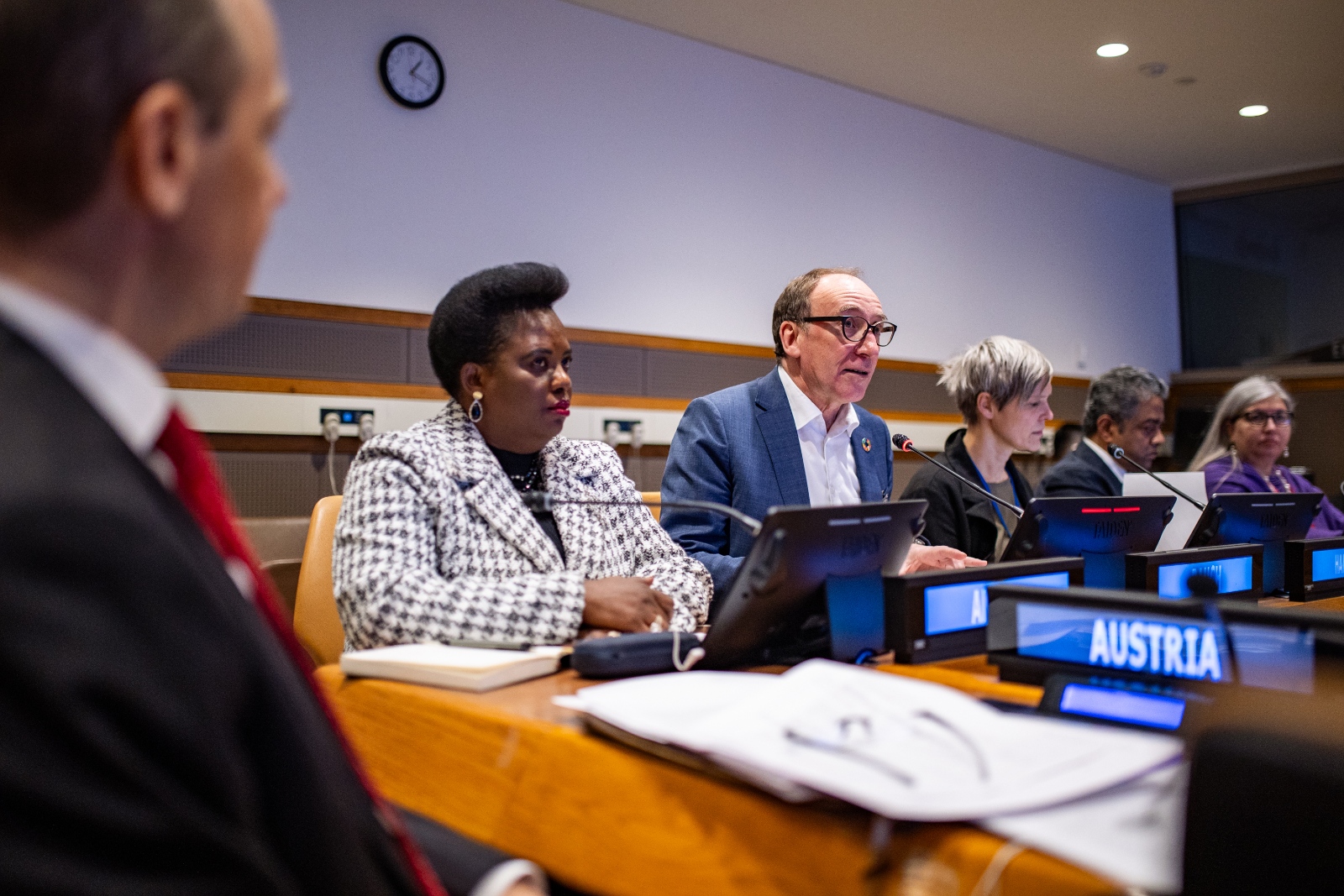
5th February 2024, United Nations Headquarters in New York, CSocD62 Side Event organized by the Austrian Mission together with the Austrian Social Ministry, where various challenges and solutions to homelessness were discussed. It was agreed that, while there were certain common factors among all nations, different socioeconomic profiles provided for different needs and solutions.
A common factor among all nations was the issue of land/home ownership and the failure of market dynamics to provide affordable housing for all. UN Special Rapporteur Rajagopal emphasized that markets themselves are not able to provide affordable housing. Government measures are necessary to prevent homelessness. State land ownership has emerged as a particularly critical factor for the success of measures to combat homelessness.
Another identified common issue was that of child and youth homelessness. It is particularly important for children and their development to have a roof over their heads. The economic damage caused by child poverty and homelessness is far greater than the prevention costs. Investments in programs to combat child homelessness should therefore not be perceived as costs, but as investments in the future, said the Austrian Social Minister Rauch. Even during crises, such investments should not be spared. The Ugandan Minister of Social Affairs Amongi emphasized that land ownership and the availability of capital on good terms have proven to be essential in the fight against homelessness in developing countries. State intervention in the housing market and the fixing of rents for a two-year period after the conclusion of contracts had also delivered promising results. The Minister stressed that a multidimensional approach was necessary to tackle the various aspects of the problem.
For middle- and high income countries, the housing first approach, which has delivered clear results in countries such as Austria and Finland, was highlighted as a promising solution. Availability and accessibility of affordable housing are crucial for housing first to succeed. In Austria, for example, families in need are supported at an early stage through the financing of deposits and cooperative contributions, which combats homelessness.
Ultimately, Special Rapporteur Rajagopal emphasized the importance of keeping an open mind when tackling social issues such as homelessness. This is key to identify effective and innovative approaches, as visualized by the Monarch School Project in San Diego, California.
At the European level, a platform to combat homelessness was founded in 2021, as explained by NGO-Representative Owen. Ending homelessness needs sufficient resources and political will. Homelessness is a structural problem, thus long term solutions for adequate housing are needed, as UN Habitat representative De Ferrari said. Support for vulnerable groups and cooperation between public and private actors are essential elements for ending homelessness.
Furthermore, the discussion revealed that in order to end homelessness it is necessary to know its extent and characteristics. National and international data collection point to relevant measures and make progress visible.
In the end all participating parties agreed that, overall, the problem lies less in a lack of material resources than in a lack of political will.
For more information about the 62nd Commission for Social Development (CSocD62), please visit: https://social.desa.un.org/csocd/62nd
Source: Permanent Mission of Austria to the UN
 Welcome to the United Nations
Welcome to the United Nations